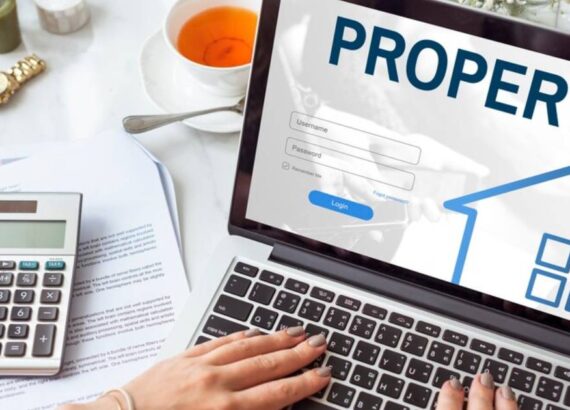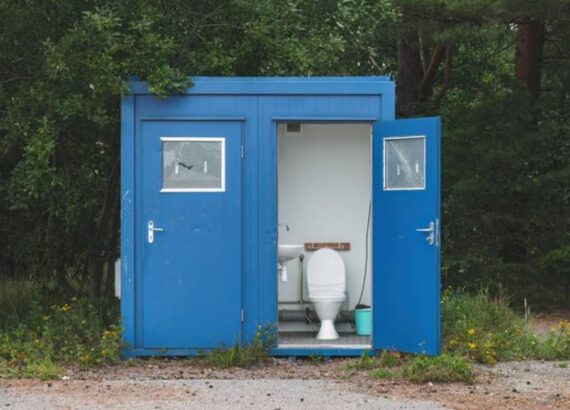How the Homebuyer Process Works: A Step-by-Step Guide

If you’re thinking about buying a home, you’re not alone. For many people, homeownership is an important milestone and a symbol of stability and success. However, the homebuying process can be overwhelming, especially if you’re a first-time buyer. With so many steps involved, it’s easy to get lost in the details and make costly mistakes. That’s why it’s essential to have a solid understanding of the homebuyer process from start to finish.
Buying a home is a significant investment, and it’s essential to approach the process with the right mindset. While it can be tempting to rush into a purchase, it’s crucial to take your time and do your due diligence. By understanding the steps involved and taking a deliberate approach, you can avoid costly mistakes and find the right home for your needs and budget. In this article, we’ll guide you through the entire homebuyer process, providing you with practical advice and tips along the way. From determining your budget to negotiating the closing costs, we’ll cover everything you need to know to make informed decisions.
In this article, we’ll walk you How the Homebuyer Process Works and through every step of the process, from determining your budget to moving in. We’ll provide you with tips and tricks that can help you avoid common pitfalls and make informed decisions. By the end of this article, you’ll have a comprehensive understanding of what it takes to buy a home, and you’ll be better prepared to take the leap into homeownership. So, whether you’re ready to start your homebuying journey or just curious about the process. Read on to learn everything you need to know.
How to Get Pre-Approved for a Homebuyer Process
Getting pre-approved for a mortgage is an essential step in the homebuying process. It’s a way to get a better understanding of how much home you can afford and helps you stand out in a competitive market. Essentially, pre-approval means that a lender has evaluated your financial situation and determined how much money they’re willing to lend you to buy a home.
To get pre-approved, you’ll need to provide your lender with documentation about your income, assets, and debts. This information will help them determine your debt-to-income ratio, which is a key factor in the pre-approval process. Ideally, your debt-to-income ratio should be no more than 43%.
Once you’ve gathered your financial documents, you can begin the pre-approval process. Start by researching different lenders to find one that offers the best rates and terms. Then, you can apply for pre-approval either online or in-person. During the application process, you’ll need to provide your lender with personal information, such as your social security number and employment history.
After you’ve submitted your application, your lender will evaluate your financial situation and provide you with a pre-approval letter. This letter will outline how much money you’re approved to borrow and at what interest rate. Having a pre-approval letter in hand can make the homebuying process smoother. As it shows sellers that you’re a serious buyer with financing in place.
It’s important to note that pre-approval is not the same as pre-qualification. Pre-qualification is a less formal process that gives you an estimate of how much money you might be able to borrow based on your self-reported financial information. Pre-approval, on the other hand, involves a more in-depth evaluation of your financial situation and is a stronger indicator of your ability to obtain financing.
Why Do You Need a Pre-Approval
If you’re thinking about buying a home, getting pre-approved for a mortgage should be one of your top priorities. While it may seem like an extra step in the homebuying process, there are several reasons why pre-approval is essential.
Firstly, pre-approval gives you a clear understanding of how much money you can borrow to buy a home. This information can help you narrow down your search and avoid wasting time looking at homes that are out of your price range. Additionally, pre-approval can give you an advantage in a competitive market. If you find a home you love, having pre-approval in place can make your offer more attractive to sellers, as it shows that you’re a serious buyer with financing in place.
Another reason to get pre-approved is that it can help you avoid disappointment down the line. If you find a home you love and put in an offer without pre-approval. You run the risk of being reject by the lender once you apply for financing. This can be a devastating blow, especially if you’ve already fallen in love with the home. By getting pre-approve before you start your search. You can avoid this scenario and make more informed decisions about the homes you view.
Pre-approval can also help you avoid potential issues during the homebuying process. If you wait until you find a home you love to start the pre-approval process. You may run into roadblocks if there are issues with your credit or employment history. By getting pre-approve early on, you can identify any potential issues and work to resolve them before they cause problems.
How long does it take to get pre-approved for the Homebuyer Process?
If you’re in the process of buying a home, you may be wondering how long it takes to get pre-approve for a mortgage. The short answer is that it depends on a variety of factors. Including the lender you’re working with and the complexity of your financial situation. However, there are some general guidelines you can follow to help you understand the timeline for pre-approval.
The pre-approval Homebuyer process can take anywhere from a few days to a few weeks. The timeline depends on how quickly you’re able to provide your lender with the necessary documentation about your income, assets, and debts. Once you’ve provided this information, your lender will evaluate your financial situation to determine how much money they’re willing to lend you to buy a home.

If you have a straightforward financial situation and can provide all of the necessary documentation quickly, the pre-approval process may only take a few days. However, if you have a more complex financial situation, such as self-employment income or multiple sources of debt. The homebuyer process may take longer. Your lender may need more time to evaluate your financial situation and determine how much money they’re willing to lend you.
It’s important to note that the pre-approval process is just one step in the homebuyer process. Once you’ve been pre-approved, you’ll still need to go through the full underwriting process before you can obtain financing to buy a home. This process can take several weeks and involves a more in-depth evaluation of your financial situation.
Does getting pre-approved guarantee the Homebuyer Process?
Getting pre-approve for a mortgage is an important step in the homebuying process. But it does not guarantee that you will be approve for financing to buy a home. Pre-approval is essentially a preliminary evaluation of your financial situation to determine how much money a lender is willing to lend you to buy a home.
Once you’ve been pre-approve, you still need to go through the full underwriting homebuyer process to obtain financing to buy a home. During this process, your lender will evaluate your financial situation in more detail. Including your credit score, employment history, and debt-to-income ratio. They will also conduct an appraisal of the home you want to buy to ensure . It is worth the amount of money you want to borrow.
While pre-approval can give you a good idea of how much home you can afford. It is not a guarantee that you will be approve for financing. There are several factors that could impact your ability to get approve for a mortgage, even if you’ve been pre-approve. For example, if your financial situation changes between the time you were pre-approve. And the time you apply for financing, you may no longer meet the lender’s criteria for approval. Additionally, if the home you want to buy does not appraise for the amount of money you want to borrow. Your lender may not be willing to lend you the full amount.
How to Find a Qualified Home Inspector
Buying a home is a significant investment, and you want to make sure that you’re making a sound decision. That’s why it’s important to have a qualified home inspector to evaluate the property and identify any potential issues or areas of concern. Start by asking your real estate agent, friends, or family members for recommendations. They may have worked with a home inspector in the past and can provide insights into their experience.
Once you have a list of potential home inspectors, it’s important to check their credentials. Look for inspectors who are members of professional organizations . Such as the American Society of Home Inspectors (ASHI) or the National Association of Home Inspectors (NAHI). These organizations typically have strict standards for membership, which can give you confidence in their expertise.
It’s also important to look for experience. Choose a home inspector who has experience in your specific area and type of home. For example, if you’re buying an older home, look for an inspector who has experience with older homes. It is knowledgeable about the unique issues that can arise with them.
Before hiring a home inspector, ask to see sample inspection reports from potential candidates. These reports can give you an idea of the level of detail and thoroughness of their inspections. Look for reports that are detailing and easy to understand. You should also ask about the inspection process. Find out what areas of the home they will inspect, how long the inspection will take. And whether they encourage you to be present during the inspection. Buying a home can be a complex process, but having the right tools and resources, like a portable table saw, can make it easier and more efficient.
Conclusion
In conclusion, buying a home is a significant investment, and it’s essential to make sure that the property is in good condition before making a purchase. That’s why finding a qualified home inspector is crucial. By following the steps outlined above. Such as asking for recommendations, checking credentials, and reviewing sample inspection reports. You can find a qualified home inspector who can provide you with a thorough and comprehensive evaluation of the home you’re considering purchasing. Keep in mind that a good home inspector can help you make an informed decision about whether a particular home is right for you. And they can also give you peace of mind knowing that you’re making a sound investment.









